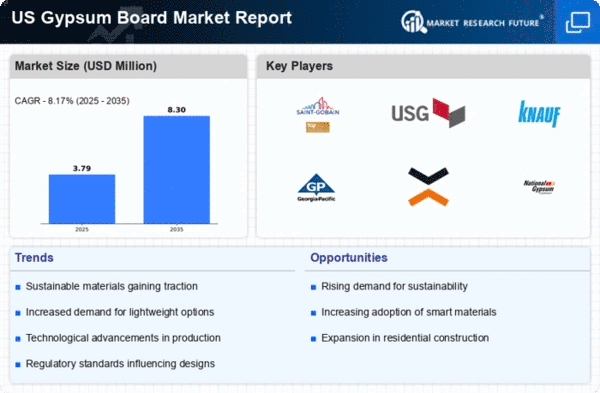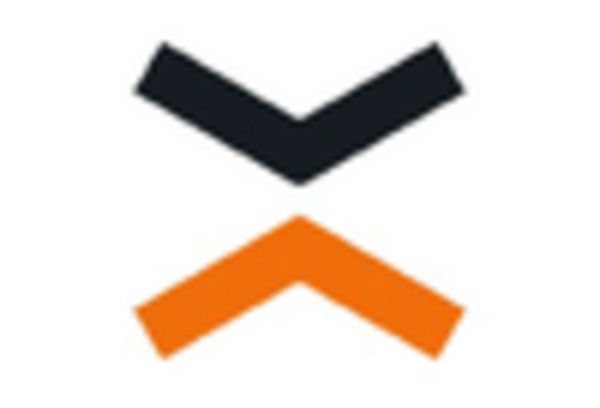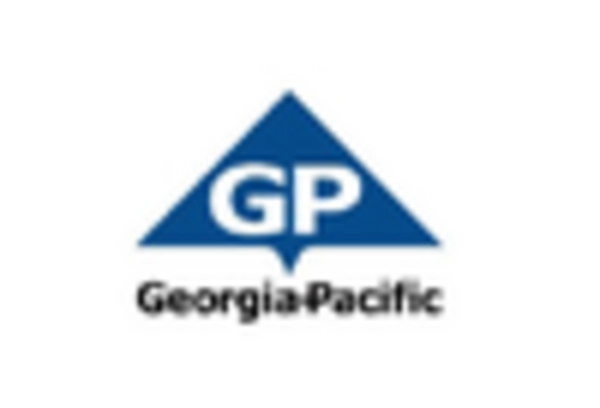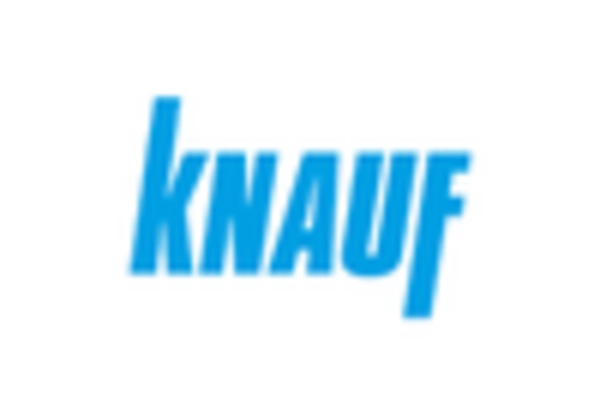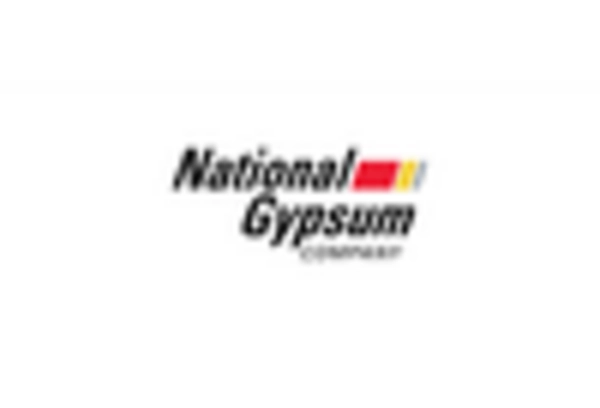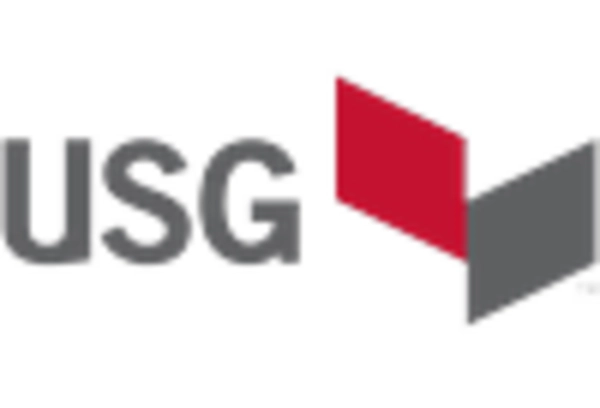Rising Construction Activities
The gypsum board market experiences a notable boost due to the increasing construction activities across the United States. With a projected growth rate of approximately 5.5% annually, the demand for gypsum boards is expected to rise significantly. This surge is primarily driven by the expansion of residential and commercial construction projects, which require high-quality materials for walls and ceilings. The construction sector's recovery and growth, fueled by government investments in infrastructure, further enhance the gypsum board market. As builders and contractors seek efficient and cost-effective solutions, gypsum boards, known for their lightweight and fire-resistant properties, become a preferred choice. Consequently, the market is likely to witness a substantial increase in sales and production, reflecting the overall health of the construction industry.
Increased Focus on Energy Efficiency
The gypsum board market is increasingly influenced by the growing emphasis on energy efficiency in building designs. As energy costs continue to rise, builders and architects are prioritizing materials that contribute to better insulation and reduced energy consumption. Gypsum boards, particularly those with enhanced thermal properties, are gaining traction as they help maintain indoor temperatures, thereby lowering heating and cooling expenses. According to recent data, buildings utilizing energy-efficient materials can reduce energy costs by up to 30%. This trend aligns with the broader movement towards sustainable construction practices, where the gypsum board market plays a crucial role. As regulations and standards for energy efficiency become more stringent, the demand for innovative gypsum board solutions is expected to grow, further propelling the market forward.
Regulatory Support for Green Building
The gypsum board market benefits from increasing regulatory support for green building initiatives. Various state and federal regulations encourage the use of sustainable materials in construction, which includes gypsum boards. These regulations often provide incentives for builders who adopt environmentally friendly practices, thereby stimulating demand for gypsum boards that meet green certification standards. The market is likely to see a rise in products that are not only eco-friendly but also comply with LEED (Leadership in Energy and Environmental Design) criteria. As a result, manufacturers are investing in research and development to create gypsum boards that are recyclable and made from sustainable resources. This regulatory environment fosters innovation and positions the gypsum board market as a key player in the transition towards more sustainable construction practices.
Technological Innovations in Manufacturing
Technological advancements in manufacturing processes are reshaping the gypsum board market. Innovations such as automated production lines and advanced quality control systems enhance efficiency and reduce production costs. These technologies enable manufacturers to produce high-quality gypsum boards at a faster rate, meeting the increasing demand from the construction sector. Furthermore, the integration of smart technologies in gypsum board production allows for better customization and improved product performance. As the market evolves, companies that adopt these technological innovations are likely to gain a competitive edge. The potential for reduced waste and improved sustainability in manufacturing processes also aligns with the growing consumer preference for environmentally responsible products, thereby driving further growth in the gypsum board market.
Growing Demand for Interior Design Solutions
The gypsum board market is experiencing a surge in demand for innovative interior design solutions. As consumers increasingly prioritize aesthetics and functionality in their living and working spaces, gypsum boards are being utilized for creative applications such as decorative ceilings, wall partitions, and acoustic solutions. The versatility of gypsum boards allows for a wide range of design possibilities, appealing to both residential and commercial sectors. Market data indicates that the interior design segment is expected to grow by approximately 6% annually, contributing to the overall expansion of the gypsum board market. This trend is further supported by the rise of DIY home improvement projects, where homeowners seek to enhance their spaces with stylish and practical materials. Consequently, the gypsum board market is likely to benefit from this growing interest in interior design.


